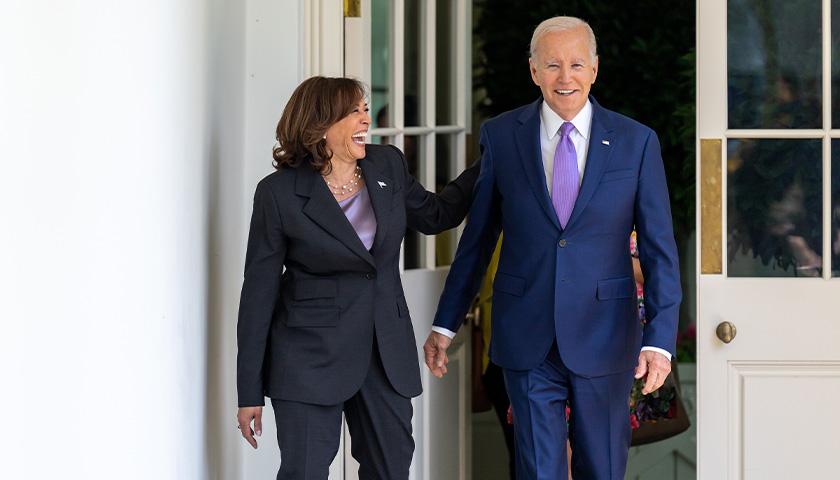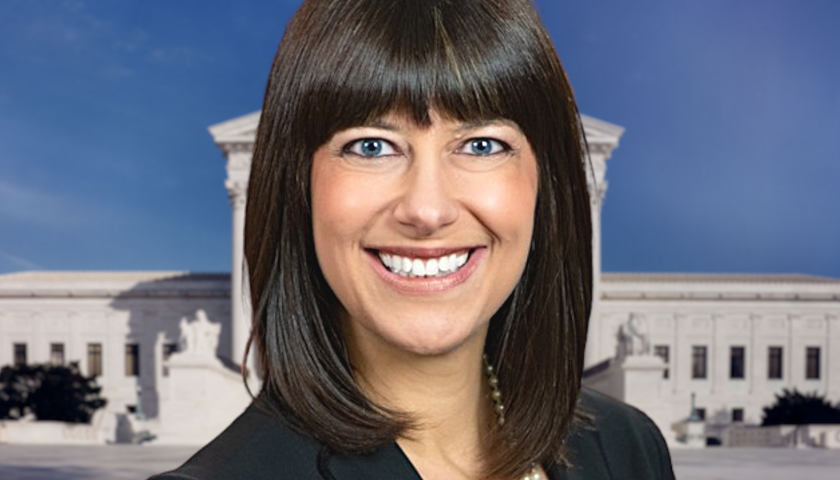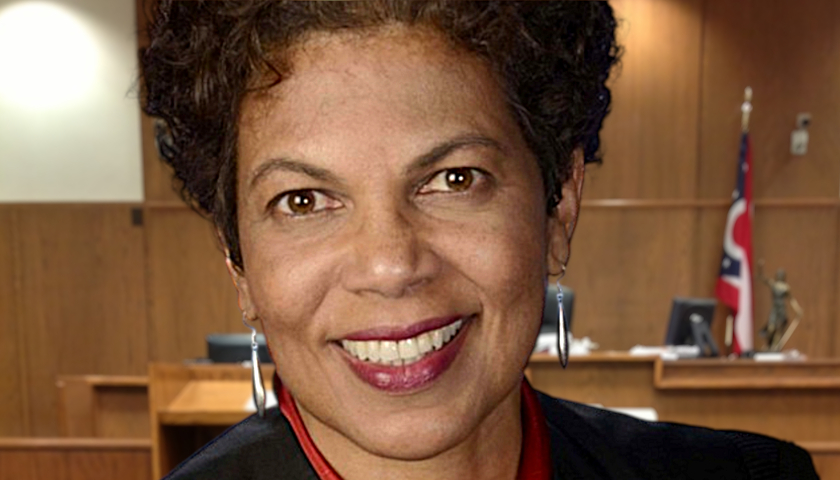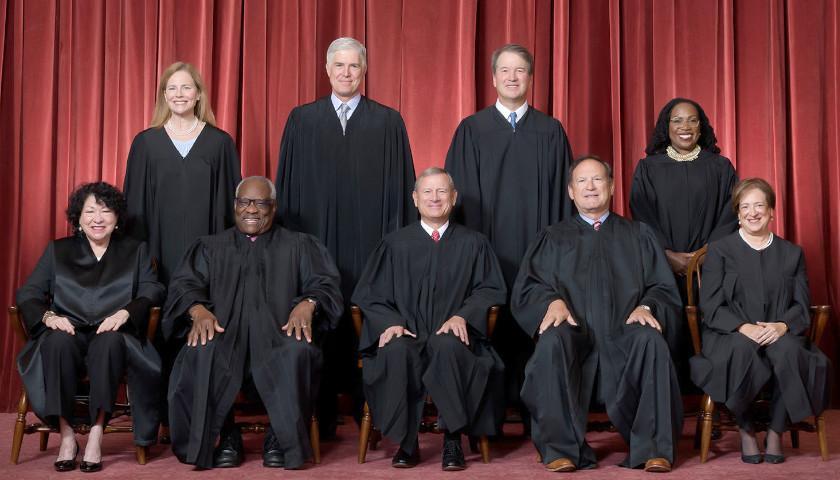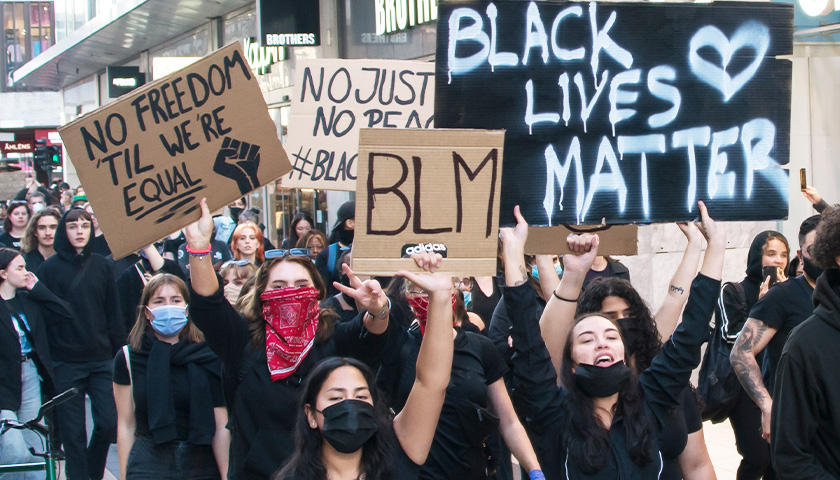by E. Donald Elliott
The fulminations against the Supreme Court’s recent rulings confirm what I have long suspected: The Left, or at least much of it, just doesn’t believe in the concept of law; for leftists, everything is about doing “the right thing” as they perceive it in any individual case — not following the law.
A good example, among many, is provided by a recent column in the Washington Post by Brian Broome:
The U.S. Supreme Court has been very busy lately making clear which kinds of people it truly values. By striking down Roe v. Wade, the justices showed us how much they value the opinions of women who want a say in their own health care. By striking down affirmative action, they showed us how much they value White over Black and Brown students. By striking down student loan forgiveness, they demonstrated how much they value those who don’t have enough money to avoid the Ponzi scheme called student loans. And today they essentially legalized the unequal treatment of LGBTQ people by holding that discrimination is a small price to pay if it lifts up just one kind of love.
Broome’s qualifications to critique Supreme Court rulings are not apparent. Yes, the Post tells us, he is a prize-winning storyteller based in Pittsburgh who produced a film called Garbage. He writes regularly for the Post to reflect “the African American perspective,” we are told, as if there were only one “perspective” among the more than 47 million African Americans. Oh yes, I forgot: If you don’t hew the Democrat’s party line, “you ain’t black,” as then–presidential candidate Joe Biden famously scolded an African-American radio host during the 2020 campaign.
Broome’s ruminations are equally jejune. He does not even attempt to engage the legal principles that the court invoked to justify its decisions. For all we know, he may not even have read the opinions. To him, when the court rules one way as opposed to another, it is not about the law but only because, as he sees it, the court likes certain “kinds” of people more than others.
If these were merely the musings of an uneducated dullard who failed — or, more likely, never took — high school civics, they would not merit a response, but they exemplify a widespread, deeply destructive, and rising current in our politics. Unfortunately, this venomous and divisive rhetoric will become even more prominent as Biden runs for reelection against the “MAGA” Supreme Court. We got a foretaste of his strategy when, in an official prepared statement from the White House, he “explained” the Supreme Court’s ruling against his power grab to “forgive” $400 billion in student loans without congressional authorization by saying it was due to the fact that “Republican officials just couldn’t bear the thought of providing relief for working-class and middle-class Americans.” Demagogues throughout history have indulged in similar mythmaking to try to retain or grab power. Similarly, the New York Times’ Supreme Court correspondents, who should know better, have been running a series comparing the results in Supreme Court cases with the policy preferences of the public with nary a mention of what the law actually says.
Democrats talk a lot about the rule of law, particularly when seeking to justify trying to put their political opponents in jail, but most of them seem not to understand what it really means. Here is a crash course adapted from the first year of law school: “The widows and orphans can’t always win.” The concept of equal protection of the laws requires that we try to apply neutral principles of law to those whom we like and those who are unpopular.
I was privileged to serve as a law clerk to two justly famous but very liberal judges, Gerhard Gesell and David Bazelon. On many occasions, each ruled differently than he would have liked because he rightly saw that he was bound by the law as a judge. I remember taking the oath required of judges to “do equal justice to rich and poor alike.” It was sobering to me, crusading legal aid lawyer that I then was, that I was promising to be fair to the rich as well as the poor rather than using power as a modern-day Robin Hood to take from the rich and give to the poor.
That’s what “the rule of law, not of men [sic]” really means: Judges are not supposed to be politicians doing whatever they think is fair or just or pleases themselves or the public in particular cases. Rather, in their role as judges, they promise to try to follow the law, not their personal preferences.
The Democrats are fond of saying, “Democracy is on the ballot.” Apparently, by “democracy,” they mean doing whatever they think will be popular with a majority of people, whether it is legal or not.
Remember that when Ben Franklin was leaving the Constitutional Convention and was asked what the founders had given us, he did not say “a democracy.” He replied, “A Republic, if you can keep it.” The difference is that in a republic, officials are bound by laws, whereas in a democracy, they may do whatever is popular with the people at a given moment in time.
That many pundits, politicians, and even some judges have not learned this basic lesson is an underappreciated but growing threat to the survival of our country as a republic based on the rule of law.
– – –
E. Donald Elliott has been a professor at Yale Law School since 1981 and now also teaches at the Scalia Law School. He teaches and writes in a wide-variety of subjects, including constitutional law, civil procedure, administrative law, and energy and environmental law. He has also practiced law in Washington, D.C. for over 30 years with several leading law firms. He is an elected member of the American Law Institute, the American College of Environmental Lawyers, and a senior fellow of the Administrative Conference of the United States. He served as general counsel of the EPA, 1989-1991.
Photo “Joe Biden and Kamala Harris” by The White House.

